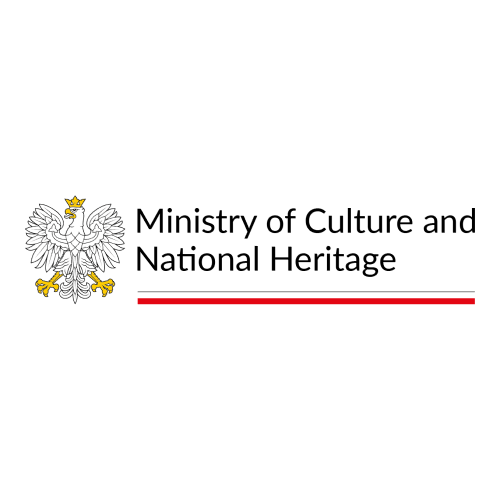Fredriana
Stanisław Moniuszko / Conrad Drzewiecki, Anna Hop
Ballet double bill
SARMATIAN PARABLE
Based on Aleksander Fredro's Revenge
Choreography: Conrad Drzewiecki
Music: Stanisław Moniuszko (fantastic overture Fairy Tale)
Staging: Emil Wesołowski
HUSBAND AND WIFE
Based on Aleksander Fredro's comedy of the same title
Choreography: Anna Hop
Music: Stanisław Moniuszko (ballet music In the billets)
Premiere: 6 April 2019, Polish National Ballet, Warsaw
Count Aleksander Fredro, Poland’s superb comedic playwright, Stanisław Moniuszko, the father of Polish opera, plus two extraordinary choreographies – Sarmatian Parable, the now-classic piece devised by the great Conrad Drzewiecki, and Husband and Wife, a contemporary work created by Anna Hop, a young, yet already acclaimed, artist.
In his lifetime, Moniuszko did write music to the Count’s plays, for instance Nowy Don Kiszot, czyli Sto szaleństw (New Don Quixote, or A Hundred Follies). Hop’s piece, however, uses Moniuszko’s only ballet, Na kwaterze (In the billets) as its score.
Sarmatian Parable, Drzewiecki’s balletic version of Fredro’s Revenge, the most amusing comedy ever written in Polish, is danced to one of Moniuszko’s best orchestral scores – the fantastic overture Fairy Tale. The Polish National Ballet managed to perfectly revive Drzewiecki’s work under the supervision of Emil Wesołowski, the iconic choreographer’s former student. The ballet wittingly tells the story of two warring clans and their young members, Waław and Klara, who fall in love but cannot find happiness due to their fathers’ obstinance.
Written in 1868, Na kwaterze (also known as Na kwaterunku), the music that accompanies Anna Hop’s choreographic take on Fredro’s Husband and Wife, is one of Moniuszko’s later pieces. Fredo’s protagonists Elwira, her husband Wacław and their lovers Alfred and the maid Justysia are tangled into a very unseemly relationship.
The double bill is another chance to listen to Moniuszko’s music which accompanies the tongue-in-the-cheek romantic storylines. The light-hearted, universal comedy ingeniously constructed by the brilliant playwright is a perfect match with Moniuszko’s at times lyrical and at times dramatic score. And so are the two choreographies superbly performed by the dancers of the Polish National Ballet.
-
Time is measured by
-

Cast
Credits
Polish National Ballet
Orchestra of the Polish National Opera
Synopsis
Sponsors
-
Partnerzy Akademii Operowej
-
Partnerzy Teatru Wielkiego - Opery Narodowej
-
Partner Polskiego Baletu Narodowego
-
Partner technologiczny
-
Patroni medialni
-
Partners of the Opera Academy
-
Partners of Teatr Wielki – Polish National Opera
-
Partner of the Polish National Ballet
-
Technological partner
-
Media patrons





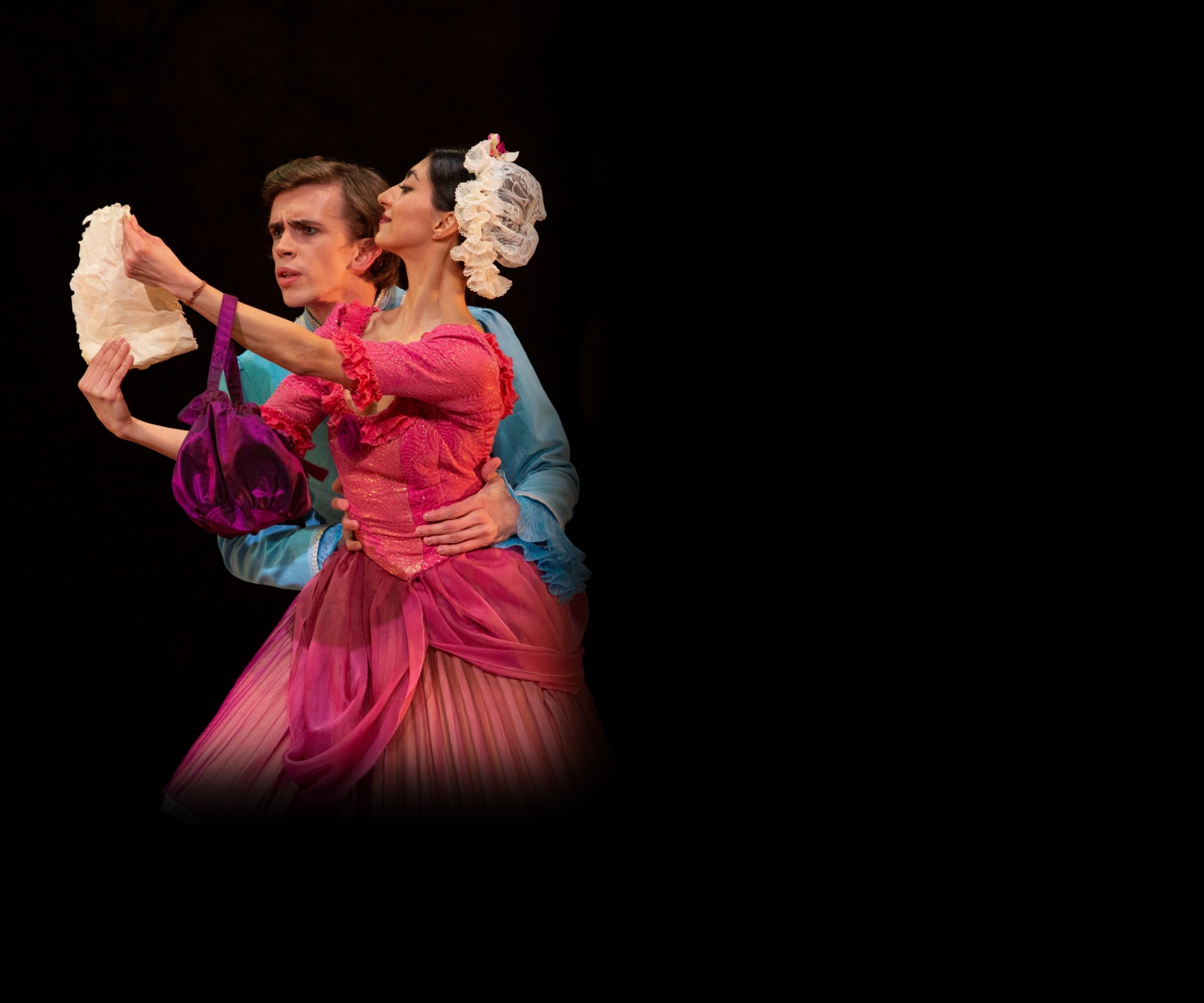
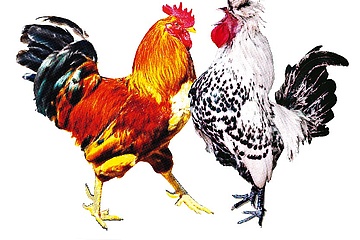
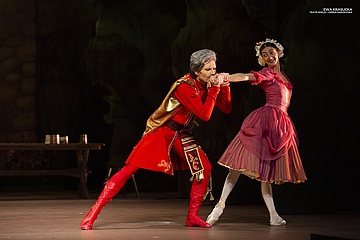
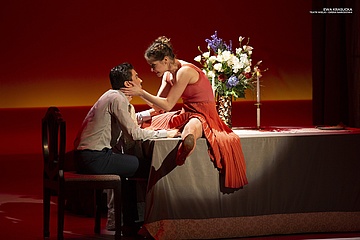
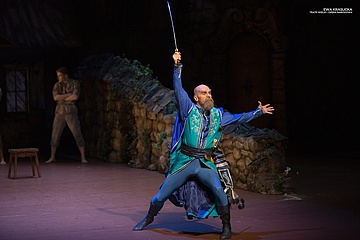
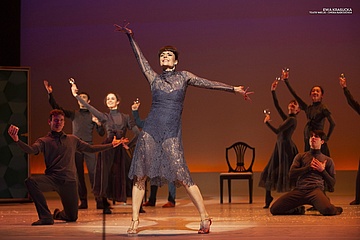
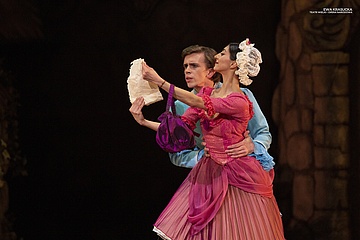
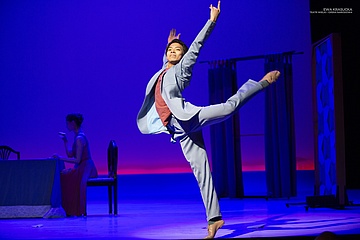
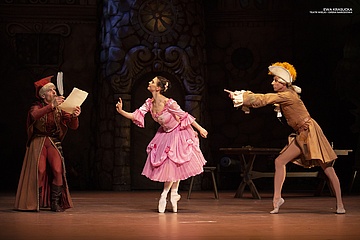
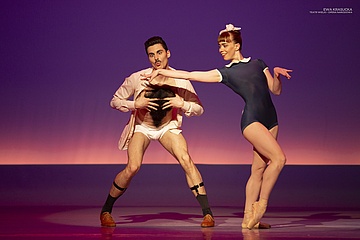
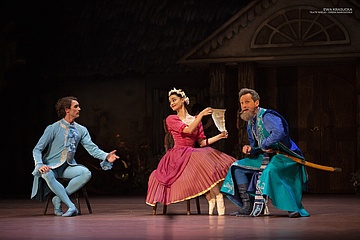
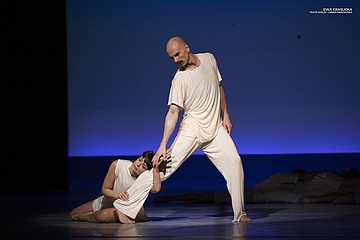
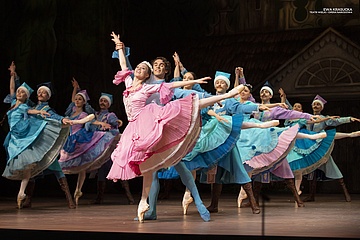
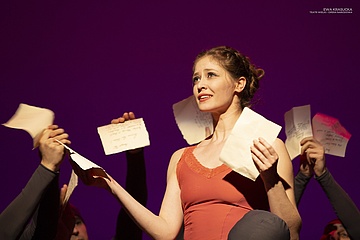
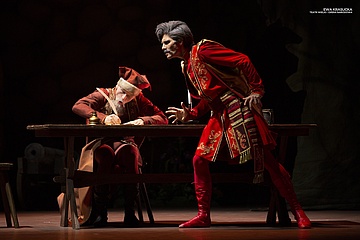
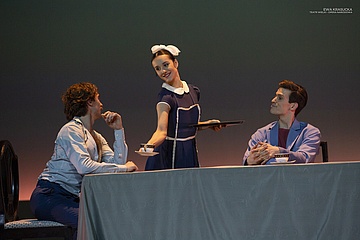
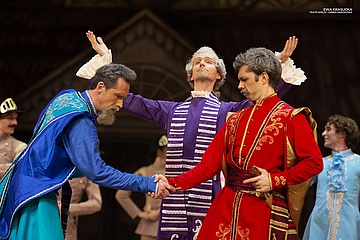
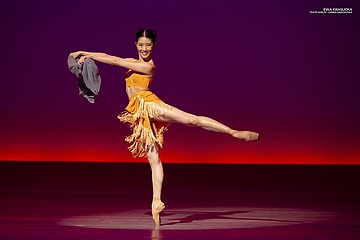
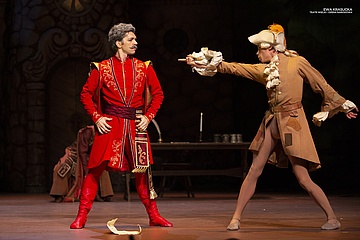
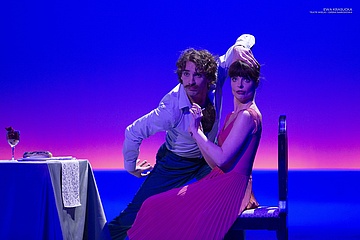
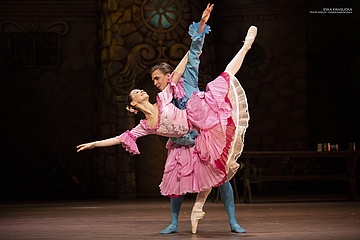
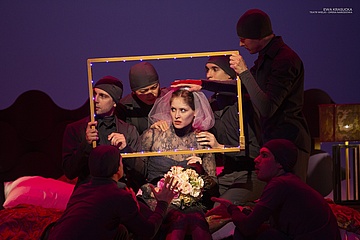
![[Translate to English:]](/fileadmin/import/media/img/ludzie/tancerze/medium/Vladimir_Yaroshenko_2024_-_kwadrat.jpg) Vladimir Yaroshenko
Vladimir Yaroshenko ![[Translate to English:]](/fileadmin/import/uploads/tx_news/Carlos_Martin_Perez_new_02.jpg) Carlos Martín Pérez
Carlos Martín Pérez  Anastasiia Bilokon
Anastasiia Bilokon Natalia Pasiut
Natalia Pasiut Patryk Walczak
Patryk Walczak ![[Translate to English:] Maksim Woitiul](/fileadmin/_processed_/3/c/csm_maksim_woitiul_www_mini_45f943f354.jpg) Maksim Woitiul
Maksim Woitiul  Adam Myśliński
Adam Myśliński  Łukasz Tużnik
Łukasz Tużnik  Marco Esposito
Marco Esposito  Joanna Drabik
Joanna Drabik  Diogo de Oliveira
Diogo de Oliveira Paweł Koncewoj
Paweł Koncewoj 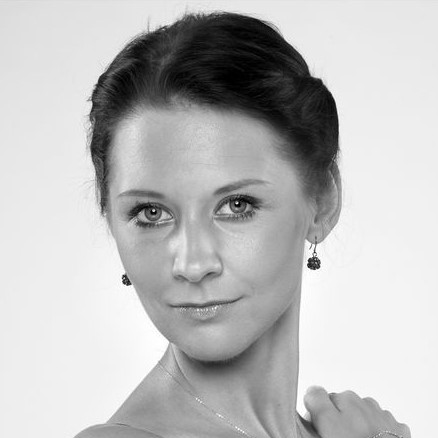 Aneta Zbrzeźniak
Aneta Zbrzeźniak ![[Translate to English:]](/fileadmin/_processed_/5/9/csm_Bartosz_Zysk_IMG_9055-Edit_-_2025_5eca535a9e.jpg) Bartosz Zyśk
Bartosz Zyśk  Cezary Wąsik
Cezary Wąsik  Nikodem Bialik
Nikodem Bialik Marta Fiedler
Marta Fiedler ![[Translate to English:]](/fileadmin/import/media/img/ludzie/tancerze/ryota_kitai_2024_-_kwadrat2.jpg) Ryota Kitai
Ryota Kitai Mar Bonet Sans
Mar Bonet Sans Wojciech Ślęzak
Wojciech Ślęzak  Vadzim Kezik
Vadzim Kezik Nikola Dworecka
Nikola Dworecka![[Translate to English:]](/fileadmin/_processed_/7/b/csm_Daria_Majewska_IMG_96401_-2025_7b9d7276a4.jpg) Daria Majewska
Daria Majewska![[Translate to English:]](/fileadmin/import/media/img/ludzie/tancerze/LAURENCE_ELLIOTT_2024_-_kwadrat_2.jpg) Laurence Elliott
Laurence Elliott Kilian Smith
Kilian Smith![[Translate to English:] Gianni Melfi](/fileadmin/_processed_/b/b/csm_Gianni_Melfi_new_1fd0828e3a.jpg) Gianni Melfi
Gianni Melfi Conrad Drzewiecki
Conrad Drzewiecki ![[Translate to English:]](/fileadmin/_processed_/f/4/csm_Emil_Wesolowski_fot._Pawel_Roslon_mini__e5d48cae55.jpg) Emil Wesołowski
Emil Wesołowski ![[Translate to English:] Anna Hop](/fileadmin/_processed_/d/8/csm_Anna_Hop__fot._Georg_Van_Der_Weyden_-_kwadrat_9edaead55d.jpg) Anna Hop
Anna Hop  Wojciech Kostrzewa
Wojciech Kostrzewa  Renata Smukała
Renata Smukała  Jan Bernaś
Jan Bernaś  Lilia Ostrouch
Lilia Ostrouch ![[Translate to English:]](/fileadmin/import/media/img/ludzie/dyrekcja/mini/szablowska_mini.jpg) Małgorzata Szabłowska
Małgorzata Szabłowska  Krzysztof Pankiewicz
Krzysztof Pankiewicz  Katarzyna Załęcka
Katarzyna Załęcka  Maciej Zień
Maciej Zień  Maciej Igielski
Maciej Igielski 





